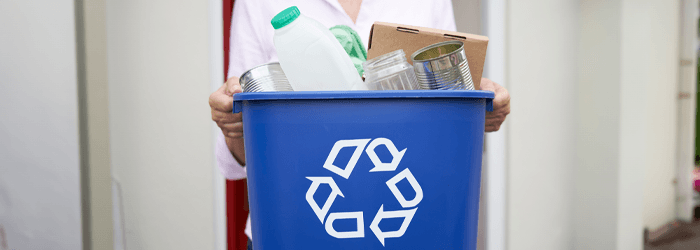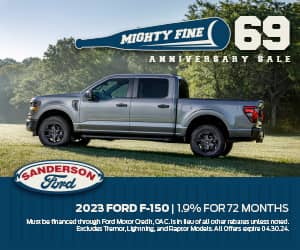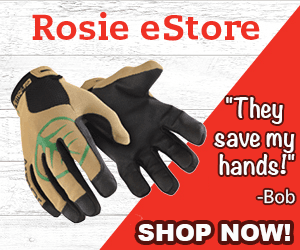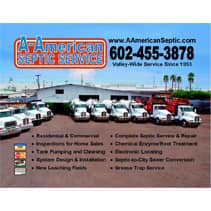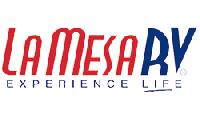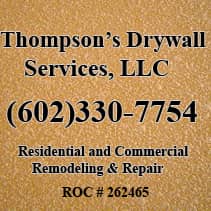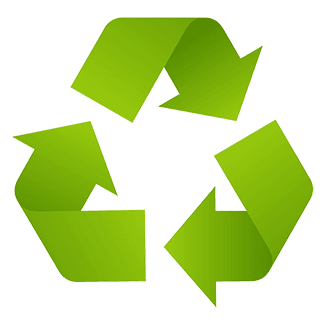
Recycling in the United States as we know it today, started with the ragman. The ragman went from house to house to buy old cloth for international trade in rags to make into paper. During World War II, people recycled nylons, tin cans and tubes, and cooking fats for the war effort.
By the 1960s, the first environmentally focused recycling programs sprang up. President Lyndon B. Johnson started passing environmental legislation.
Today, the ragman no longer pops by, and we recycle more than glass and metal.
Let’s take a look at what and how we recycle in Arizona.
Recycle Symbols
The original recycling symbol was created in 1970 in honor of the first Earth Day. Today there are countless variations with each specific material.
Decoding and understanding recycling labels found on everyday products can be tricky. The triangular arrow symbol is easy to understand. The confusing part is the number inside.
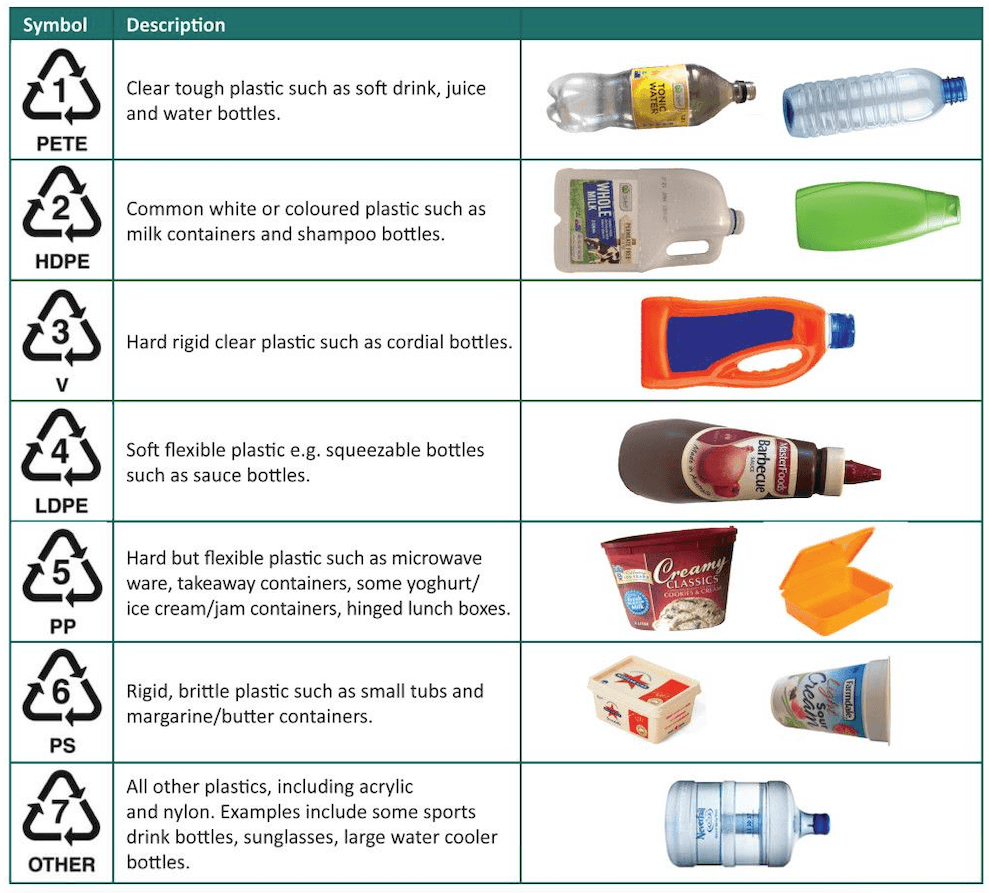
This EPA Consumer Guide to Recycling Codes goes into more detail.
General Household Waste
Glass
Most curbside recycling programs accept different glass colors and types mixed together. The glass is sorted at the recovery facility.
Fun Fact: The EPA says, “Glass, especially glass food and beverage containers, can be recycled over and over again. In the United States in 2018, 12.3 million tons of glass were generated, 31.3 percent of which was recycled. Making new glass from recycled glass is typically cheaper than using raw materials.
As a consumer, broken glass should not go into the recycling bin. Glass shards can harm workers and damage equipment. Also, remove metal bottle caps. They should be recycled separately from the glass bottles.”
Don’t toss dead light bulbs in the trash. Check with your local recycling facility or take them to a retail store that offers light bulb recycling.
Aluminum
So, what do you do with countless empty cans of dog and cat food? Recycle them of course (if they are aluminum). Don’t bother crushing them unless your municipality requires it. Crushed cans are harder to detect when being sorted at recycling facilities.
Aluminum foil can be recycled. Make sure to remove any food residue before recycling.
As for other metals, check with your municipality.
Plastic
Recycling plastic can be tricky.
The recycling codes for plastics are divided into seven categories. Generally, the higher the number, the more difficult it is to recycle that material. For example, PS 6, polystyrene (PS) plastic, known as Styrofoam, is commonly found in takeout containers and disposable cups. It is generally not accepted within recycling programs. Whereas PET 1, Polyethylene terephthalate (PET or PETE), is very common and easy to recycle. It is accepted by most municipal recycling programs and commonly found in disposable food and drink containers and prepared and frozen food containers.
Plastic bags, wraps, and films are recyclable, but cannot go in your household recycling bin. Retail and grocery stores often accept these recycling materials. Cut off the sealable zippers from sandwich bags before recycling them. Contact your local grocery store or visit Earth911 to find a location near you that recycles these items.
Paper
Most paper can be recycled. The exceptions are cardboard boxes with food stains and paper gift wrap with shiny or laminated coating. Paperback books can be recycled as-is. Remove the cover from a hardcover book before recycling.
Pro Tip: If you use gift wrap, purchase a type that can be recycled or is made from recycled content.
Furniture
Earth911 says, as a rule of thumb, repair old furniture if possible, donate if available, and recycle with bulk waste as a last resort.
Hazardous Household Waste
The EPA states that leftover household products that can catch fire, react, explode, or are corrosive are considered household hazardous waste (HHW). Although it depends on your local solid waste agency/recycling facility, some examples include:
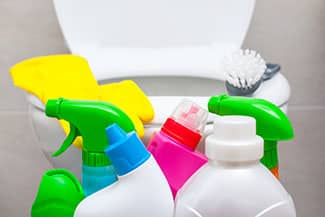
- pesticides
- herbicides
- insecticides
- paints
- solvents
- oil filters
- light bulbs
- unemptied aerosol cans
- ammunition
- ammonia
- antifreeze
- nail polish
- thermometers
- barometers
These products require special care when being disposed of. HHW may be dangerous to people and bad for the environment if they are poured down the drain, dumped on the ground, or thrown out with regular trash. Check with your municipality before disposing of them.
Batteries
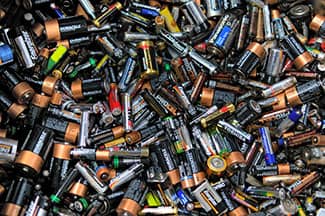
Because Arizona does not have state battery regulations, we follow the federal requirements.
The federal law requires, with certain exceptions, used nickel-cadmium (Ni-Cd) and small sealed lead acid (Pb) batteries to be managed as Universal Waste.
Some household batteries are recyclable. However, most batteries, including lithium-ion, lithium metal, lead-acid, nickel cadmium, and other rechargeable batteries, should NOT go in household garbage or recycling bins. These batteries require special handling and should be taken to specialty drop-off locations (check with electronic shops like Best Buy) or household hazardous waste collection points. Contact your municipality to find out where to recycle them.
Miscellaneous Items
Tires
Most garages must accept and recycle used tires during replacement. You may be able to return used tires to either a tire retailer or a local recycling facility that accepts tires. Some communities will hold collection events for used tires. Tires should never be dumped in the desert or anywhere else. Disease-carrying pests such as rodents will make their homes in tire piles. Tire piles are also a fire hazard.
Old Clothes & Shoes
Gently worn clothes and shoes can be recycled, but not the way glass and plastic are. These items should be donated to charities or resale stores.
Printer Ink Cartridges
Two options for keeping printer cartridges out of landfill are recycling or refilling them.
Some retailers such as Office Depot and Walgreens will recycle ink cartridges, as will Goodwill. For more recycling locations, visit Earth911 recycling locator to find options in your area. Pro Tip: When buying replacement cartridges avoid products described only as “compatible” to ensure they can be recycled after use. Cheap cartridges might save money, but will likely end up in landfills, and never decompose.
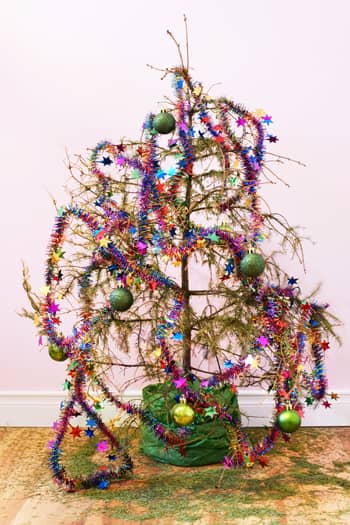
Christmas Trees
The National Christmas Tree Association offers these recycling suggestions:
- Curbside pick-up: Many providers will collect trees during regular pickup schedules on the two weeks following Christmas. There are often requirements for size, removing ornaments, flocking, etc.
- Take your tree to a drop-off recycling center: Most counties have free drop-off locations. Usually, you may take up to two trees to a drop-off location at no charge.
- Tree recycling/mulching programs: Check with your municipality for information. They may chip and shred the trees, then give you the mulch to use in your garden.
- Nonprofit pick-up: Call for an appointment to have a nonprofit organization in your area pick up your tree. Sometimes the Boy Scout troops offer a pickup service for a small donation.
- Yard waste: Cut the tree to fit loosely into your yard waste container.
Mixing Non-Recyclable Materials with Recycled Materials
It may not seem like a big deal if non-recyclable items end up in the recycle bin. But it is a big deal.
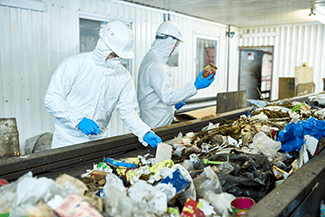
Keeping safety at the forefront, recycling workers have to sort through the items that are collected for recycling and remove those that are not recyclable. This process is called contamination removal. Recycling workers must be very mindful while sorting through the items because they could encounter hazardous materials such as needles, broken glass, and chemicals.
Non-recyclable items can decrease the efficiency of the recycling process, damage the equipment, and contaminate recyclable materials. Contaminated recyclable material can attract pests, create unsanitary conditions, and reduce the value of other recyclables.
With the cost of curbside recycling services varying depending on the location and frequency of the service, you could end up paying more for bins weighed down with non-recyclable items if you are charged by weight.
Common Recycling Myths
The City of Phoenix Public Works Department busts these recycling myths:
Myth: Recyclables just go to the landfill anyways.
Truth: All recyclables are sent to one of their Materials Recovery Facilities (MRF’s). The MRF’s goal is to remove contamination from the recyclables and to sort the recyclables back into their main categories of paper, plastic, glass and metal. The materials are then sold and transported to their next destination to be recycled.
Myth: Paper towels, napkins and tissue paper are recyclable.
Truth: No, they are not recyclable. Paper towels, napkins and tissue paper are at the end of their life because the fibers are too short to be recycled.
Myth: Recyclables need to be spotless to be recycled.
Truth: Recyclables should be clean, dry and empty before being placed in the recycle container. sure, sure the majority of food particles are either scraped or rinsed out. Just a quick rinse is all you need.
Check out the myths in your municipality.
We have come a long way in recycling. As recycling technology improves, so will our ability to reduce waste!
###
PODCAST
Questions from homeowners include tempered glass shower door exploding, stains thru a wall, bathroom tile cracking in a one year old home, termites, the Weekly To Do on recycling and more!
Podcast Archive With Expanded Content and Resources
PHOTO CREDIT
- Shutterstock
- iStock

